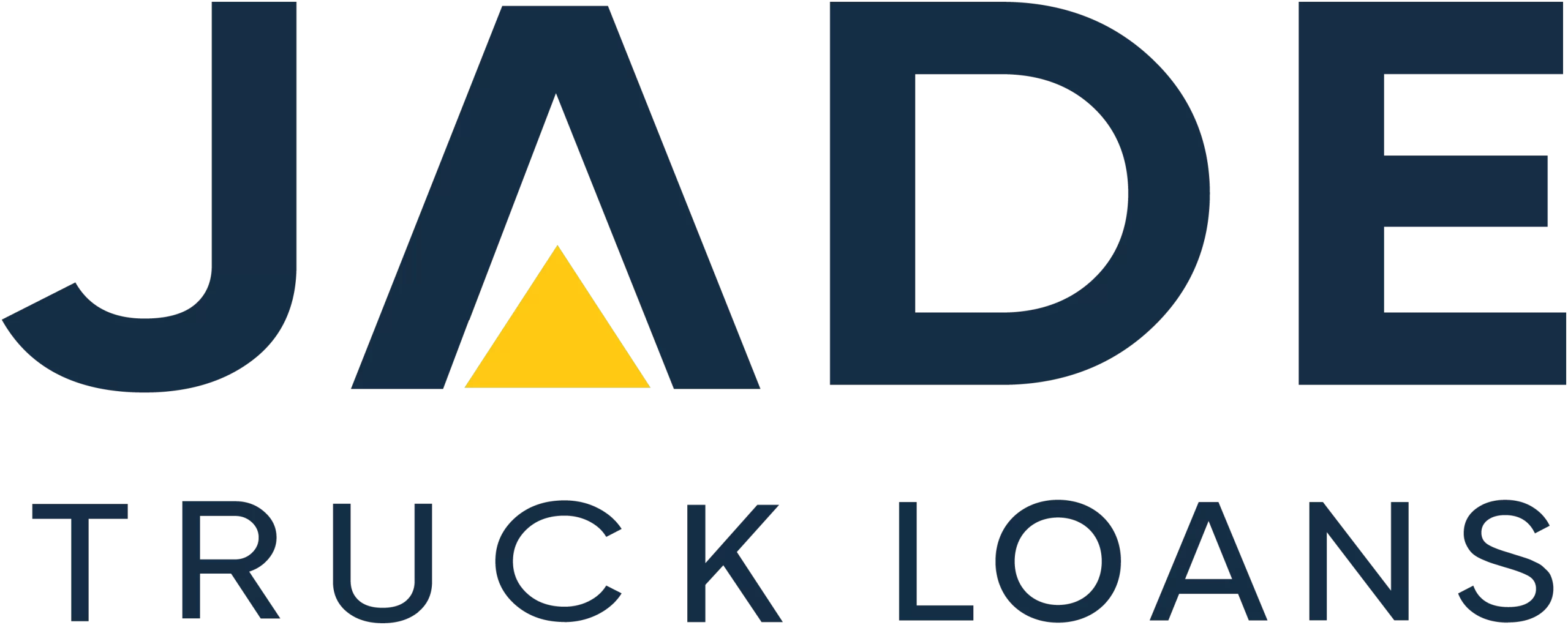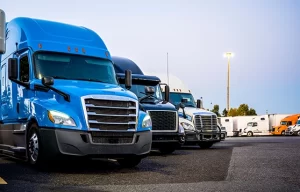The Instant Asset Write-Off (IAWO) bandwagon has not just been ‘rolling through town’ over the past 18+ months it seems to have taken up permanent residency alongside temporary full expensing. This highly attractive accelerated asset depreciation tax measure certainly is worthy of central position in truck purchasing decision. Definitely worthy of the continual promotion by truck dealers and manufacturers and the lending sector – Jade Truck Loans included. We have continually reminded our customers of this tax-effective way of financing new trucks, including exploring IAWO truck loan alternatives, due to the significant benefits on offer for eligible businesses.
But what if you’ve looked at what’s involved and - yeah nah – decided it’s not for you? Why wouldn’t the prospect of being able to realise the full amount of a truck purchase as a tax deduction in the year of purchase suit every business? Such a move can represent a huge reduction in taxable income and result in a reduced tax liability. It may also result in the business recording a loss in that year and make it eligible for the Loss Carry Back which comes with a cash refund of tax paid in previous years.
While there are undoubtedly numerous advantages to utilizing Instant Asset Write-Off (IAWO) and temporary full expensing for eligible business purchases, it's essential to recognize that this approach might not align with every business's circumstances. Several factors can contribute to this discrepancy, including the potential negative implications of having a substantial asset-liability on the company's financial statements and the incompatibility of businesses that employ accrual accounting methods rather than the more suitable cash method aligned with Chattel Mortgages.
In light of these considerations, we delve into a comprehensive examination of IAWO and temporary full expensing, exploring the intricacies involved. Additionally, we present alternative truck loan options that can also provide businesses with tax benefits, taking into account the diverse needs and preferences of each business.
Rewind and Remind: IAWO Features/Benefits
The concept of Instant Asset Write-Off (IAWO) was initially introduced as a component of the Federal Government's initial COVID-19 business stimulus package around March-April 2020. However, its applicability and eligibility criteria were somewhat limited, and its timing, with an initial deadline set for June 30, 2020, posed challenges for numerous businesses navigating the uncertainties of the situation. In response to these concerns, the Government took steps to broaden and extend the measure, leading to its transformation into what we now know as temporary full expensing during the October 2020 Budget.
This measure functions as an expedited asset depreciation mechanism, permitting businesses to deduct the complete value of the asset as an expense within the financial year of acquisition. However, this involves acquiring the asset through a finance arrangement where ownership is assumed by the business at the time of purchase, which can be explored further with IAWO truck loan alternatives. This approach results in the asset being included on their balance sheet and being eligible for depreciation.
Chattel Mortgage for truck & trailer financing is seen as best-suited to meet these aspects and is suited to businesses that use the cash method of accounting.
Tax Effective Chattel Mortgage Alternatives
It's important to recognize that not all businesses may find it suitable to have a high-value asset like a new truck listed on their balance sheet, which is a requirement under the Instant Asset Write-Off (IAWO) and temporary full expensing schemes. The potential accounting implications of this scenario can be thoroughly examined and discussed with a qualified business accountant.
For those businesses where the IAWO-Chattel Mortgage combination doesn't align with their operational needs, there are several alternative forms of truck finance available that offer substantial tax benefits without necessitating the inclusion of the truck or asset on the company's balance sheet.
Both Truck Leasing and Truck rental finance are known as off-balance sheet financing as the asset/truck is not posted to the borrower’s balance sheet. Over the term of the finance, the ownership of the truck is retained by the lender while the borrower still has full use and operation of the truck.
The tax benefits of these types of finance include:-
- The monthly lease/rental repayments are considered an operating expense and are fully tax deductible. This allows the business to realise a tax deduction of 12 x monthly payments each year.
- When the finance contract is finalised with the payout of any residual/buy back, that amount would also be considered a tax deduction if fully paid out. If a residual/buy back is refinanced with a new loan contract, the tax deductibility appropriate to that loan type would apply.
- GST is charged on repayments, excluding the interest component. For businesses that are registered for GST, that amount is claimed on the corresponding BAS return. Note that with Chattel Mortgage the GST is paid at time of purchase in the loan contract and the full amount claimed on the next BAS. So in effect, with both loan types, the GST is claimed at the time it is paid. No loss there.
While the truck loan rates are typically higher for leasing and rent to own than for Chattel Mortgage, the other benefits of an off-balance sheet finance facility may outweigh the costs. While the role of your Jade Truck Loans consultant is to source and negotiated the cheapest interest rate truck loan, we advise customers to refer to their accountant on the selection of truck loan type.
Leasing and Rent to Own truck finance is available to our no docs truck loans and bad credit truck loan applicants.
No matter the type of truck you're acquiring or the scale and industry of your business, Jade Truck Loans is dedicated to securing the most affordable and financially efficient tax loan solution that aligns with your needs.
Contact Jade Truck Loans on 1300 000 003 to discuss an off-balance sheet truck loan.
DISCLAIMER: THIS INFORMATION IS ISSUED PURELY FOR THE PURPOSE OF GENERAL INFORMATION PROVISION. IT IS NOT TO BE TAKEN AS THE ONLY SOURCE OF INFORMATION FOR BASING FINANCIAL DECISION-MAKING. THOSE REQUIRING FINANCIAL GUIDANCE AND ADVICE SHOULD CONSULT WITH THEIR FINANCIAL CONSULTANT OR ADVISOR. NO LIABILITY IS ACCEPTED FOR ANY MISREPRESENTATION OF POLICIES, DATA OR ERRORS IN THIS CONTENT.


 " alt="">
" alt="">